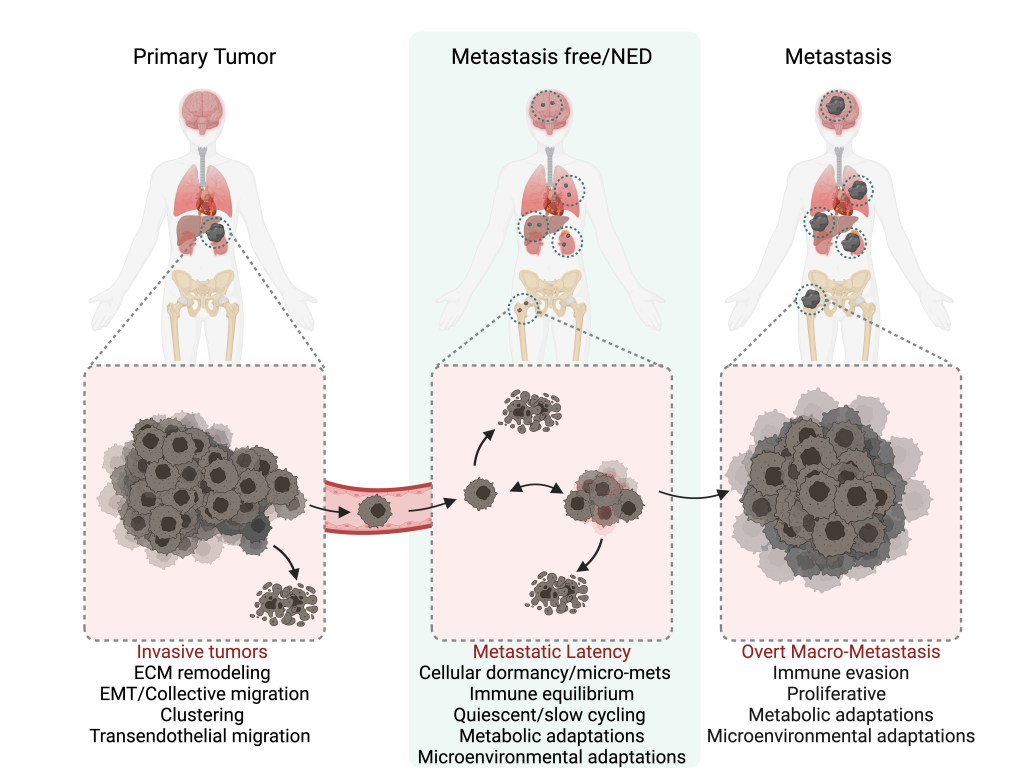Metastatic relapse can occur in cancer patients months to decades after an initial diagnosis and treatment, even when there is no clinical evidence of disease. This phenomenon is believed to be driven by disseminated cancer cells capable of entering a reversible state of cell cycle arrest, allowing them to evade detection and treatment. These latent tumor cells interact dynamically with their surrounding microenvironment, which supports their survival and helps them escape immune surveillance.
The Malladi Lab focuses on developing preclinical models to investigate the unique biology of these latent metastasis-initiating cells. By employing a variety of genetic, molecular, biochemical, and imaging techniques, our research aims to create a conceptual framework for understanding the biology of these cells and their behavior. We aim to (i) understand how disseminated tumor cells survive in distal organs as residual or latent disease, (ii) define the molecular and metabolic dependencies of metastasis initiating cells and (iii) translate our findings into improved diagnostic and therapeutic strategies to eliminate these "metastatic seeds" before they initiate overt metastasis.
Current ongoing research projects in our lab include:
- Delineating genomic, epigenomic and metabolic regulators of metastatic latency and recurrence.
- Identifying molecular switches that control the entry into and exit from metastatic latency.
- Investigating the role of the microenvironment in promoting metastatic latency and recurrence.
- Screening for mediators of therapeutic resistance, metastatic competence, and overt metastasis.
- Developing therapeutic strategies to eradicate metastasis-initiating cells and prevent the progression to overt metastasis.
